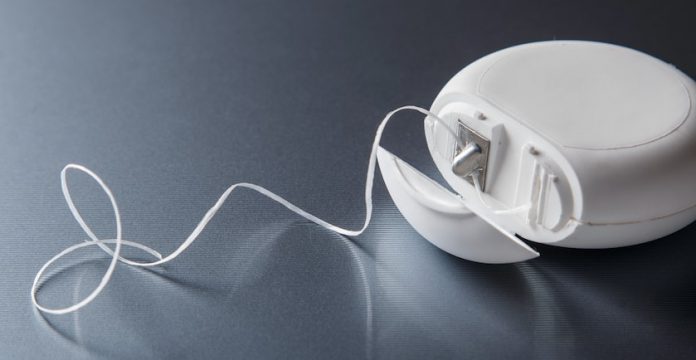
As long as the dental floss you’ve been using seems to get the job done, you probably haven’t given it much thought. That may change once you read this, however. I hadn’t thought about my flossing product either, but once I did some investigating, I came up with 7 reasons to switch my brand of dental floss immediately. I want to share those reasons with you.
Flossing takes only a few minutes, but those are critical moments in your day. Daily flossing helps remove plaque from between your teeth and along the gum line, which in turn prevents tooth loss and gum disease. If using traditional dental floss is a challenge for you because you can’t reach properly and/or have difficulty maneuvering the floss, you might try a Y-shaped flosser or interdental cleaners (pics).
Why switch dental floss brands
But what if the dental floss you use day after day-that has intimate contact with your gums and mouth-contains or is made from potentially harmful ingredients? Could the very act of trying to prevent dental problems be jeopardizing your health and that of your family?
It could be if you are using dental floss that involves the following features. To help you decide if it’s time for you to find a new brand of dental floss, here are seven reasons why you may want to switch.
1. Petroleum.
Many dental floss brands are made from nylon, which poses several issues. One, nylon is a petroleum-based product. Production of nylon dental floss uses oil and releases nitrous oxides into the atmosphere. Two, nylon takes a long time to decompose. And three, you should never flush nylon dental floss down the toilet because it can contribute to clogging of the sewer system.
2. Polytetrafluoroethylene (PTFE).
This synthetic coating is a type of Teflon. It makes sense that you would want your dental floss to be non-stick and resist shredding, but making it with this toxic substance (which has been associated with cancer and hormone disruption), fortunately, is not your only choice. However, choosing between nylon and silk may cause you to scratch your head for a moment.
3. Nylon vs. silk.
Here’s an issue individual consumers will need to decide for themselves. Nylon is made from petroleum (already discussed), while silk can involve using a chemical sterilization process. Dental floss made from 100% all-natural spun silk (which is 100% biodegradable) is available. Vegans may object to the use of silk.
4. Petroleum coating.
Petroleum raises its ugly head again because it can be used to coat or wax dental floss as well. Instead, look for dental floss that has been waxed with 100 percent vegetable wax, such as rice bran or candelilla plant wax.

5. Fluoride.
Similar to toothpaste, many dental floss brands involve fluoride. Although the American Dental Association insists that fluoride is a necessary part of dental care, much research has pointed out its health hazards. Exposure to fluoride in dental products and water may contribute to premature aging, suppress the immune system and thyroid function, and is associated with brittle bones, tooth discoloration, fatigue, depression, tinnitus, stomach ulcers, stiff joints, and hearing loss. Choose a dental floss that has not been coated with fluoride.
6. Flavors.
Do you like your dental floss to have a minty fresh taste? Mint is not the only flavor you’ll find in dental floss; bacon, pickles, and cupcakes are just a few of the others on the market. A great tasting dental floss is a plus, but you want to know the source of that flavor. Unfortunately, most dental floss products are not forthcoming about the flavor source, which suggests they do not use natural flavors. Look for dental floss that uses essential oils (e.g., Mercola Dental Floss) or clearly states its flavor source before using it in your mouth.
7. Perfluoroctanoic acid (PFOA).
Some dental floss makers use PFOA to make their product glide effortlessly between your teeth. Even though PFOA has been viewed as safe by experts, a recent study indicates otherwise. At Emory University Rollins School of Public Health, investigators found that more than 10 percent of individuals who had been exposed to PFOA in drinking water had some thyroid disease. Although this study did not involve the use of dental floss, the risk seems worth mentioning given that dental floss does make contact with sensitive tissues and that PFOA doesn’t break down easily.
Waxed or unwaxed dental floss?
All this discussion about dental floss brings to mind a question: which is better, waxed or unwaxed? When it comes to effectiveness, the authors of a study published in the Journal of Periodontology came to the following conclusion after comparing the two types at the University of Michigan School of Dentistry. When waxed and unwaxed were compared for removing plaque, gingival response and gum bleeding, they found no significant difference between the two types of floss.
Perhaps it’s time to take inventory of your dental floss to determine if you and your family are using a safe product. Check out the variety of natural brands on the market (e.g., Mercola Dental Floss, Dr. Tung's, Tom’s of Maine, Desert Essence, Radius, among others) and make your own decision. Just don’t stop flossing!










